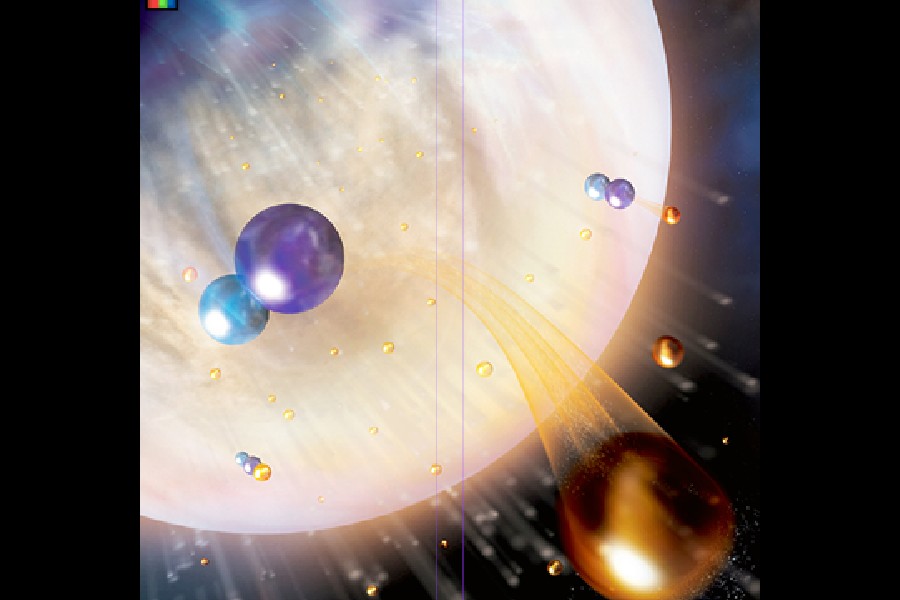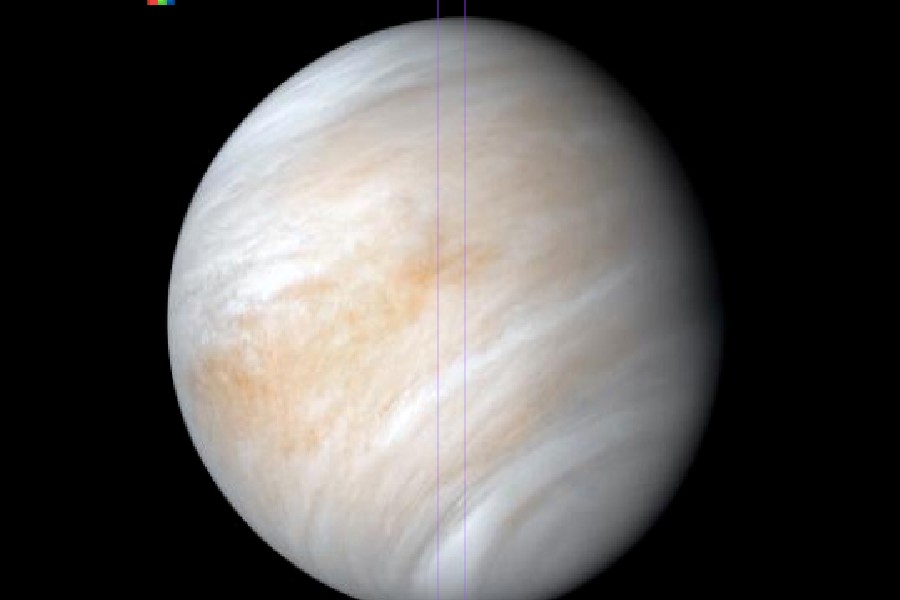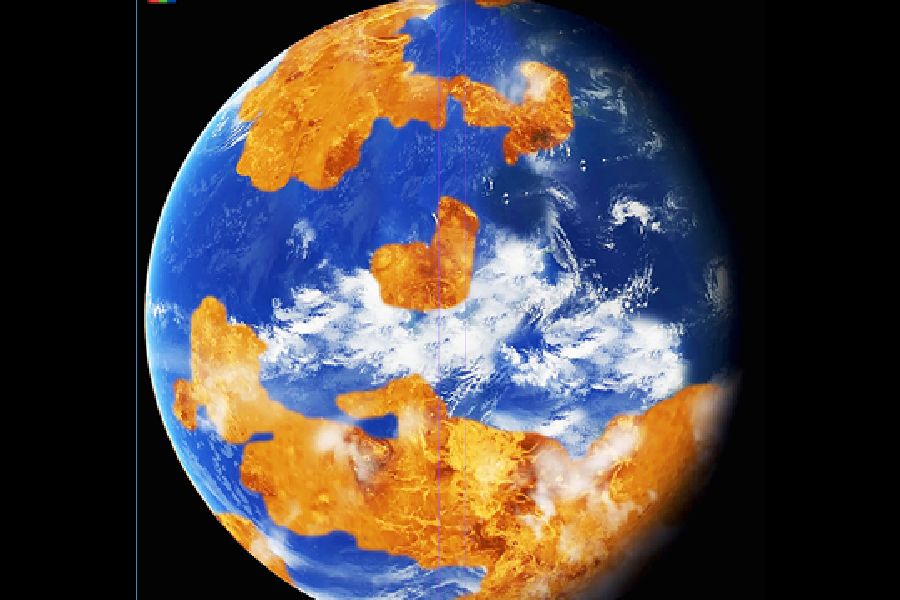Scientists have determined how Venus lost its water, resolving a long-standing puzzle of why the planet once believed to be covered with oceans now has about 100,000 times less water than Earth.
A team of US scientists has shown through computer simulations that the absence of water on Venus results from hydrogen chemistry in the planet’s atmosphere
and not just because it is a scorching hot planet — the average temperature on the surface of Venus is about 460 decrees Celsius.
Their study suggests that a molecule called HCO+ containing one atom each of hydrogen, carbon and oxygen high in the planet’s atmosphere interacts with electrons, splitting the HCO+ to produce hydrogen atoms that escape into space, robbing Venus
of one of the two components of water.

A scorching Venus shedding water. Illustration by Aurore Simonnet, University of Colorado, Boulder
“Water is really important for life,” Eryn Cangi, a scientist at the University of Colorado, Boulder, and co-lead author of the study published on Monday in the research journal Nature, said in a media release.
Cangi said the study was aimed at understanding the conditions that support liquid water in the universe and that may have produced the current very dry state of Venus.
“If you took all the water on Earth and spread it like jam on toast, you’d get a liquid layer roughly 3km deep. If you did the same thing on Venus where all water is trapped in the atmosphere, you’d wind up with only a 3cm layer,” she said.

An actual image of the planet taken by a US spacecraft. NASA
The scientists have estimated that the HCO+ splitting would cause Venus to lose twice as much water as earlier estimates. One problem is that HCO+ has never been observed around Venus despite several space missions to the planet. But Cangi and co-lead author Michael Chaffin believe this is because the spacecraft didn’t carry instruments to look for HCO+.
Computer modeling by scientists at Nasa's Goddard Institute of Space Studies had in 2016 suggested that Venus may have had a shallow liquid water ocean and habitable surface temperatures for up to two billion years of its history after the birth of the solar system 4.6 billion years ago.










